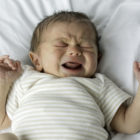When accidents occur in hotels, injured people often don’t realize that the hotel may be liable to pay compensation. Having an accident in a hotel is not like having one at home because the hotel is responsible for maintenance and keeping the place safe for guests. It’s also responsible for the actions of its staff. This means that it’s often possible to claim compensation for hotel accidents—and this can be done even in situations where the hotel has already made a gesture of apology, such as providing a discount.
Typical hotel accidents
There are several types of accidents for which hotels can be held to be liable, including the following:
- Slips, trips and falls caused by things like objects being left on the floor, carpets being frayed or floors being washed without any warning signs being put up.
- Electric shocks from inadequately maintained equipment, such as kettles, hairdryers or television sets.
- Getting into difficulty in hotel swimming pools where there is no trained lifeguard on duty.
- Food poisoning or choking on objects in food in hotel restaurants.
- Bites from bedbugs or other vermin.
Every country has slightly different rules about what hotels are obliged to do to keep their premises safe, but every developed country has some form of health and safety law that applies in the above situations. Good accident lawyers with experience in this area are familiar with the relevant laws and are able to help in international cases where a general lawyer might struggle.
Getting help
As well as committing to safety standards, hotels are usually obliged to have procedures in place to help guests who are injured. Most hotels have at least one staff member who is trained in first aid and every hotel should have a first aid kit on the premises. Some larger hotels even have their own retained doctor, and where that’s not the case, they should have the details of local doctors, hospitals and other medical centers so they can quickly summon help for guests with serious injuries or get them to a place where the right help is available. They are often able to provide translators to help injured guests communicate with doctors who speak a different language.
Hotels are generally under an obligation to get help for injured guests whether or not the hotel is responsible—directly or indirectly—for the injury happening in the first place.
Dealing with the paperwork
In most countries, hotels are obliged to record any major injuries (such as broken bones or serious burns) and any instances of guests being hospitalized. Major chain hotels have standard procedures for doing this, even in places where the law is less strict. Injured guests should ask for a copy of the report on their injuries so that they have the option of using it as part of a compensation claim.
In order to claim compensation for an injury it is also necessary to have a medical report that confirms it. Often this is something that travelers can sort out with their own doctors upon returning home, but it’s always better to get such a report as soon as possible. Any qualified doctor, anywhere in the world, can write one of these, and it doesn’t matter if it’s in a foreign language as long as it’s accurate.
Collecting other evidence
It’s always useful to have multiple sources of evidence in a compensation case so accident victims should ask for the contact details of anyone who witnessed what happened to them. It can also be useful to have photographs of the place where the accident happened and, if the injury is easy to see, photographs that show it at its worst.
Sometimes accidents happen after a prolonged period of poor maintenance, and sometimes it turns out that other guests have been injured in the same way in the past but nothing has been done to fix the problem. In this situation, hotel staff are sometimes willing to testify, and it’s useful to collect their contact details.
Claiming compensation
Although it’s useful to gather evidence while still in the place where the accident happened, the legal process of claiming compensation can be started after getting home. It’s a lot easier than many people think and it can often be done on a no win, no fee basis, meaning it’s an option even for people without much money. Compensation can include damages, money to cover for lost earnings if it’s difficult to work after an accident, money to help work around practical problems in day-to-day life (eg, by paying for a wheelchair) and money to cover the cost of having to go home early. The lawyer will handle all the hard work so that the injured person can focus on getting better.



